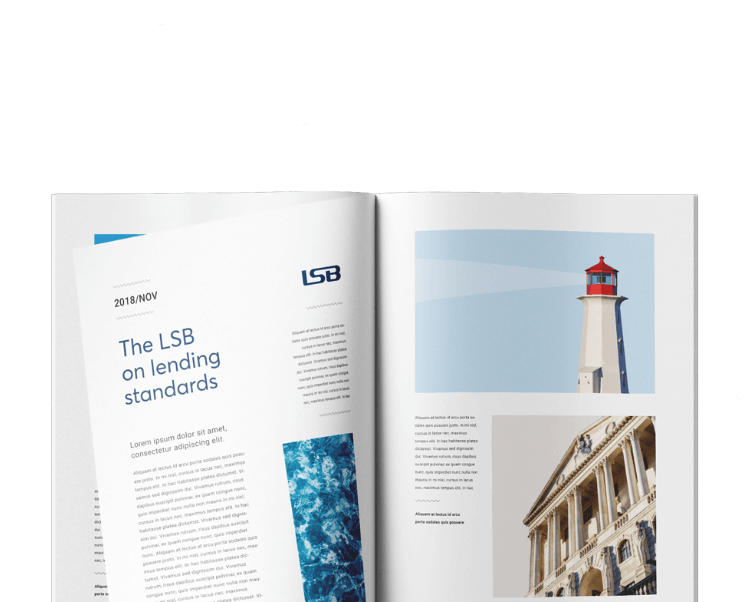Introduction
The impact of problem gambling can be devasting and affect all elements of a participant’s life, from their personal finances, to careers or relationships at home.[1] With coronavirus in its second wave and restrictions in place to help mitigate the spread of the virus, there is the potential for levels of problem gambling to increase. Financial service providers should always be aware of the dangers linked to problem gambling[2] but must be particularly vigilant at this time in order to protect vulnerable customers.
This piece considers how:
- Staff need to understand what problem gambling is and how to identify signs of it.
- Firms should review their customer and product journey to see where problem gambling is most likely to crystallise.
- Firms should learn from past examples of problem gambling, including reviewing where the first signs of it became apparent and if there were missed opportunities for early assistance.
- Staff need to understand the internal support that may be available for problem gamblers (such as card blockers) and what third party help there is.
We are grateful to GambleAware[3] for sharing its insight with the LSB for this thought piece.
Background
Like the majority of sectors across the UK, the gambling industry was greatly impacted by coronavirus. There were a number of reasons for this including the suspension of live sport, closure of bookmaking stores and less frequent customer visits to stores (limiting the opportunity to purchase scratch cards or play the lottery).[4] These measures played a part in an overall drop in gambling activity during the first lockdown.
Despite the decrease in gambling, the danger of problem gambling was still very much present, as described here by the CEO of gambling charity Gordan Moody, ‘COVID-19 in many ways created a perfect storm of boredom, financial constraint and isolation, that significantly increased the number of people experiencing serious issues related to gambling.’[5]
The policy of ‘local COVID alert levels’ (the tier system) was announced by the Government in October 2020. The tier system used a risk based and regional approach to tackling coronavirus with the aim of reducing infections and subsequent harm. The tier system changed to a national lockdown that began on 5 November and this was replaced by the new local restriction tier system on 2 December 2020.[6] There are differences between the first lockdown in March and the current system. For the gambling sector a major change is that elite level sport is able to take place under the current system.
28% of respondents to a YouGov survey performed on behalf of GambleAware said they gambled less during the first March lockdown because they liked ‘different types of gambling (for example live sports or preferring to gamble in person).’[7] Live sport being available could lead to more people gambling during this period of restrictions and for some people, an increase in problem gambling. It is an appropriate time for firms across financial services to consider the risks of problem gambling and what they can do to support customers in relation to it.
What is problem gambling?
Problem gambling is defined as ‘behaviour related to gambling which causes harm to the gambler and those around them.’[8] GambleAware estimates that there are 340,000 problem gamblers in the UK, with over 2 million people experiencing some level of harm. There can be a devasting financial impact of problem gambling on individuals and their families.[9] It can also lead to tragic outcomes, for example, research indicates there are between 250-650 gambling related suicides in the UK a year.[10]
Problem gambling and coronavirus
Depression, anxiety and other mental health challenges are linked to problem gambling with gambling sometimes being used ‘to forget about responsibilities’ and ‘to feel better when you feel depressed or sad’.[11] This is in part because the action of gambling can, for some individuals, temporarily stop negative thoughts by creating a short-term ‘high.’ These highs can become harder to achieve the more an individual engages in the activity. This can lead to some people gambling more frequently or for larger amounts of money.[12] At a time when people are suffering from stress and anxiety due to coronavirus, for some it will be very tempting to find a temporary escape through gambling.
There can also be a form of community found through gambling even when conducted online.[13] Many social media resources (such as Twitter or Facebook accounts) relate to gambling.[14] The use of social media accounts has been described as an ‘established strategy to engage and maintain customer loyalty’ and postings from gambling companies online do not always carry responsible gambling information.[15] This means that even for those customers who are having to stay at home due to coronavirus restrictions, there is still both the means of gambling and a community that can accessed 24 hours a day.
What can firms do to help?
Staff awareness
Firms can help customers affected by problem gambling by identifying it and offering appropriate support. Many registered firms and other financial service providers are in a unique position to identify problem gambling because of the information they hold on customers. This can include access to bank statements or records of their spending. These details can help prompt questions as to whether the customer is in control of their gambling or if they need support.
Firms could consider whether staff are trained to be aware of problem gambling and when this training was delivered. This training could include what problem gambling entails and how it can negatively affect customers’ lives and those of their friends and families. Training may also explain how to identify problem gambling and how to engage with the customer to understand their situation. Any training relating to vulnerable customers and the treatment of those in vulnerable situations (such as problem gambling) should be reviewed and refreshed regularly so that staff knowledge is kept up to date.
There may be various tools that firms already have in place for customers who wish to curb their gambling. For example, this could include a bank card gambling blocker[16] that customers can use to voluntarily stop them being able to make gambling transactions. Alongside continually developing methods that can help customers with gambling difficulties, firms should consider whether their first-line staff are appropriately trained on the available tools. To continue the example with the card blocker, agents should know what it is, how it works and be able to talk a customer through why it may be beneficial for them.
Identifying problem gambling
There may be various opportunities for staff to identify instances of problem gambling depending on the product and customer journey. These could include at the application or underwriting stage, when dealing with enquiries relating to the account, or when supporting a customer through financial difficulties.
Gambling transactions can be identified in a number of ways. This could include seeing examples of multiple transactions to online betting companies, some of which will be identifiable due to the name of the gambling company being featured on the bank transaction. Firms could consider providing staff with a list of the major bookmaking and casino companies in the UK so that staff have an idea of the sort of transactions and companies to be aware of.
Problem gambling can also be identified by reviewing any irregular spending or transactions. For example, if a customer in financial difficulties has regular transactions being made to an unidentifiable company, it would be appropriate to ask the customer about this spending. This is both to ensure that all regular spending is considered during an account review or income and expenditure assessment (I&E), whilst also identifying opportunities to offer support where required. Gambling transactions can also be made in cash through physical bookmaker stores. If there are regular cash withdrawals of the account it may be worth probing the reason for this, to ensure any regular expenditure (on gambling or otherwise) is accurately recorded.
It is important to note that the majority of customers who have gambling transactions on their account will not be problem gamblers. Gambling is a popular past-time for many who are able to control their spending and take regular breaks. The gambling industry has also agreed to the Safer Gambling Commitments to try and mitigate the risk of customers becoming problem gamblers.[17]
Identification and credit card providers
For credit card companies, it may be that customers are using credit to gamble despite the recent ban on credit cards being used for gambling transactions. This is because cash could be withdrawn or balance and cash transfers used for gambling purposes. For this reason, credit card companies should ensure their first line staff are aware of how customers could be subject to problem gambling and receive appropriate training on how to support customers when required.
Identification and debt collection agencies
Debt collection agencies (DCAs) are in a particularly good place to identify problem gambling due to the detailed income and expenditure assessment that will be completed with a majority of customers. By probing a customer’s spending, it may be possible to identify where there is a gap between the committed expenditure as described by the customer and their actual expenditure. For example, if the customer’s completed I&E shows expenditure of £1,000 per month, but the customer is often getting into arrears despite an income of £1,200, there is a discrepancy to investigate. It may be that an expenditure such as gambling is the cause of it.
Firms should consider if customers are asked about any gambling expenses during income and expenditure assessments. This may be appropriate when asking about expenditure on hobbies or other discretionary spends. It should also be noted that a customer’s gambling may well change over time. When reviewing a customer’s account, it should not be assumed that because there was not any gambling spend previously that it is the case now.
To illustrate this point and its relation to coronavirus, it is possible a customer who regularly bets on football had an account review in March when the majority of live sport was suspended. Their gambling expenditure may therefore have been zero at the time. This may now have changed dramatically with the re-introduction of live sport and football matches. Through the use of open questions and probing for more information when required, agents may be able to identify gambling and offer support to the customer if appropriate.
Engagement
It can be daunting for staff to engage customers about a vulnerability or challenge such as problem gambling. By training staff on the best way to speak to customers about a potential vulnerability (including problem gambling), firms are more likely to give staff the confidence to ask pertinent questions when needed. Training should focus on asking open questions and actively listening to the customer. This gives the agent the opportunity to recognise times when the customer may be omitting important information (such as regular gambling expenditure) or may be embarrassed to talk about a subject. By displaying empathy with customers, agents are also more likely to build a positive relationship with the customer and encourage open conversations.
Role playing can be a useful way to train staff on how to engage with customers and build good levels of rapport in a secure classroom environment. Call listening sessions, including hearing calls involving problem gambling, can also be a way for staff to understand ‘what good looks like’ and hear the triggers that could identify opportunities for support.
Signposting
As the gambling charity GamCare describes, ‘problem gambling is a complex and multi-dimensional activity.’ For this reason, instances of problem gambling are unlikely to be resolved by talking to a firm’s agent alone. Customers should instead look to speak to the professionals that exist to help problem gamblers.[18]
Firms should review the signposting information and training that is currently provided in relation to problem gambling. Staff should be able to easily access information on the best organisations to signpost customers towards, including the National Gambling Helpline. They should also be comfortable explaining to customers why it may be beneficial to engage with the third party and, in the case of the National Gambling Helpline, that support is available 24 hours a day. This is important in relation to gambling as the urge to gamble could affect individuals at any time and often when they are feeling vulnerable, anxious, or alone.
By positively selling the benefits of signposting to those customers who need it, agents are more likely to get customer buy-in and positive action after the call. The timing of signposting within the structure of a call is also important. Signposting can sound like an afterthought if delivered at the wrong time, for example, if mentioned hurriedly by the adviser at the end of a call. By providing signposting as a natural part of the conversation about a vulnerability or other need, customers are more likely to take onboard the advice and seek assistance.
Continuous learning
Identifying problem gambling can be difficult due to the nature of the transactions (which could be to unknown online companies) or cash withdrawals that are then used in bookmakers. The customer may be unwilling to admit to a problem with gambling or believe that it is under control. It could also be an embarrassing topic for the customer to discuss, leading them to not mention any gambling expenditure.
For these reasons, it is worth firms considering how they can learn from past customer journeys involving problem gambling. This could include examples where customers were signposted to gambling support or who went into financial difficulties before problem gambling was identified. Customer journey reviews such as these offer firms a chance to see if their approach to gambling is working or if there are areas for improvement.
If customer journey reviews identify missed opportunities for signposting, firms should consider refresher training and whether quality assurance (QA) teams are aware of the need to monitor and feedback on it. Journey reviews can also prompt internal conversations about the most effective way to engage with customers displaying signs of problem gambling. This can influence the future direction of training so that it reflects the best way to talk openly and empathetically about problem gambling.
Firms should also think about how they are able to access management information (MI) relating to problem gambling. If there is a way to track accounts where support has been offered or an issue identified, firms can then monitor if there are any increases or trends in the type of customer behaviour they are seeing. This insight could help identify the sort of accounts, patterns of spending or credit utilisation linked to problem gambling. For example, if accounts linked to one type of credit card were seeing a high-level of cash withdrawals and subsequent difficulties related to gambling, it would be wise for agents to be aware of this and product development teams to consider if the product is working as intended.
Conclusion
The hidden nature of problem gambling and the potential for exceptional levels of customer harm means that firms need to be vigilant in their approach to it. First-line staff should be trained to understand what problem gambling is, how it can affect customers and how to refer problem gamblers to appropriate support. Alongside providing resources and information on the subject, training should focus on the communication elements involved in engaging customers in vulnerable circumstances. Call listening sessions and role-playing exercises can help increase the confidence of agents so that they can ask probing and open questions in a timely manner.
Beyond the treatment on the first-line, firms should consider how they monitor and analyse problem gambling as it relates to their customer base. Customer journey reviews can help identify areas that may require further training or processes that are not working as intended. Sharing insight on any trends, for example, customer or product types that are more prone to instances of problem gambling, can help agents identify and support customers. The gambling industry is constantly adapting, with new products and technology being introduced to attract customers and retain the interest of gamblers.[19] Similarly, firms need to continually review their processes in relation to gambling in order to identify areas for development.
The effects of coronavirus are still ongoing and it is impossible to tell how the next few months will play out. However, we can be certain that for some customers, problem gambling will create financial and other problems that will linger long after any vaccine for COVID-19 is introduced. By taking steps to identify and help those customers now, firms will be able to make a great difference both to the quality of customers’ lives and those of their friends and family.
Contact details
Anna Roughley – Head of Insight & Support
annaroughley@lstdb.org.uk – 07392 867 176
Harry Hughes – Senior Insight & Support Manager
harryhughes@lstdb.org.uk – 07387 108 498
Download a copy of this thought piece here.
[1] Gambling Therapy, How can gambling affect you?
[2] GambleAware, Keeping people safe from gambling harms
[4] GambleAware/YouGov, The impact of the COVID-19 lockdown on gambling behaviour, harms and demand for treatment and support
[5] Matthew Hickey, Supporting problem gamblers throughout lockdown
[6] Gov.UK, Local restriction tiers: what you need to know
[7] GambleAware/YouGov, The impact of the COVID-19 lockdown on gambling behaviour, harms and demand for treatment and support
[8] Gambling Commission, Gambling participation in 2018: behaviour, awareness and attitudes
[9] GamCare, How can gambling affect your life
[11] Royal College of Psychiatrists, Problem gambling
[12] Scientific America, How the brain gets addicted to gambling
[13] Mental Health Foundation, Gambling and mental health
[14] Gambling Commission, Gambling participation in 2018: behaviour, awareness and attitudes
[15] Journal of Gambling Studies, A Content Analysis of Gambling Operators’ Twitter Accounts at the Start of the English Premier League Football Season
[16] Money and Gambling: Practice, Insight, Evidence (MAGPIE), When the funds stop: maximising the effectiveness of bank card gambling blockers
[17] The Betting and Gaming Council, Safer Gambling Commitments
[18] GamCare, Talk to us now
[19] Deloitte, The future of the British remote gaming and betting industry





